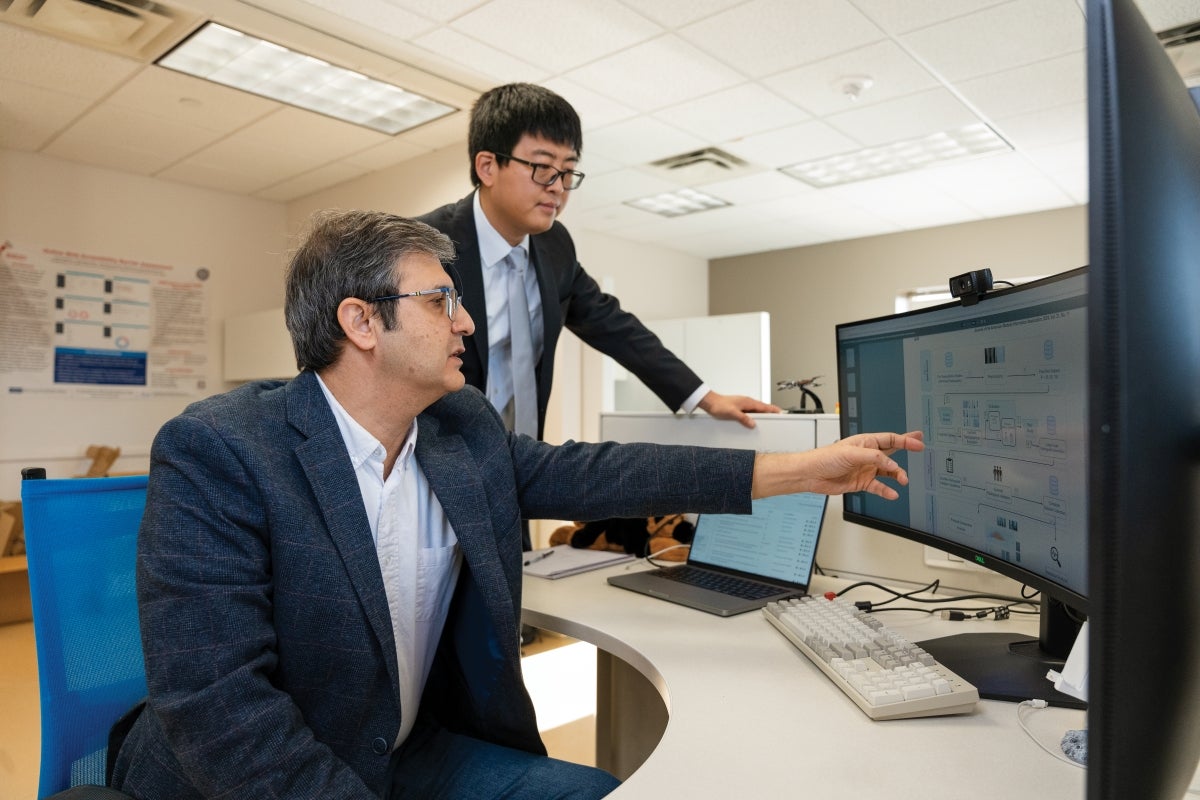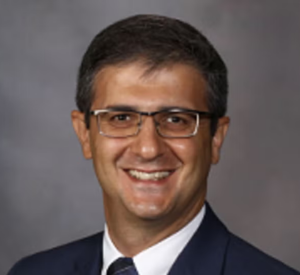The University of Pittsburgh and the technology company Leidos announced a $10 million partnership to advance Pitt’s Computational Pathology and AI Center of Excellence (CPACE) on Friday, April 18, 2025.
The partnership between Pitt and Leidos will strengthen CPACE’s position as a health care leader in the AI space. In just 14 months since its founding, the center has assembled a multidisciplinary team of faculty, researchers and software developers. CPACE continues to disseminate AI knowledge while developing innovative tools and applications aimed at enhancing clinical practice.
School of Health and Rehabilitation Sciences (SHRS) Department of Health Information Management Assistant Professor and Director of the HexAI Research Laboratory, Ahmad P. Tafti, is among the contributors to the CPACE team as the director of Scientific Affairs. “I am honored to contribute to shaping the scientific and educational direction of CPACE with this transformative $10 million investment in AI in medicine from Leidos,” he said.
Yanshan Wang, assistant professor and vice chair for Research, Department of Health Information Management, and director of the Clinical Natural Language Processing and Artificial Intelligence Innovation Laboratory (PittNAIL), is also a member of the CPACE team as the interim director of Generative AI.
Tafti and Wang’s involvement in this AI center is a great example of a joint effort between CPACE, SHRS, and the Intelligent Systems Program at the Pitt School of Computing and Information, which is helping to drive several of CPACE’s educational and scientific efforts forward. This November, CPACE is hosting a new AI symposium, sponsored by Leidos, which is designed to help democratize AI literacy and increase networking opportunities between various key industry, academic and government stakeholders.


Working closely with visionary leaders such as Hooman Rashidi, executive director of CPACE and associate dean of Artificial Intelligence in Medicine and professor of Pathology, and Liron Pantanowitz, chair of the Department of Pathology and professor of Pathology, School of Medicine, Tafti is helping to drive these key efforts forward. His vision not only advances CPACE’s scientific mission, but also amplifies SHRS’ commitment to patient‑centered innovation, education and research. “We are proud of his leadership and eager to expand this dynamic partnership with CPACE,” said Rashidi.
The first focus of the five-year collaboration between CPACE and Leidos will be developing AI-powered tools for quicker detection of diseases, like heart disease and cancer, reducing diagnostic turnaround times and enabling earlier, more effective care management.
This partnership merges academic excellence and technological innovation, acting as a catalyst to expand Pitt’s impact in applying AI to health care—both regionally and beyond.
Rashidi said Leidos’ investment into CPACE will help patients in rural and other underserved areas receive the same early diagnosis and cutting-edge treatment plans as those living near top medical centers.
“At the end of the day,” Rashidi said, “the mission of CPACE reflects that of both Pitt’s schools of the health sciences and Leidos to solve some of the most pressing health, research and educational problems so both patients and the workforce can benefit.”


